Guest Post by Lisa Grabl
Earlier this year, I had the opportunity to accompany a group of healthcare providers on a medical mission to Cambodia. Though I have worked in healthcare staffing for nearly 20 years, I have never worked in any sort of clinical setting. The thought of going to another country to offer medical care was rather intimidating, but I still jumped at the opportunity to go and participate in whatever way I could.
We set up a permanent base of operations on one of the Cambodian islands in the Thailand Gulf and made daily trips to other nearby isolated islands.
Each day, the entire group would form a line and pass the supplies onto shore and then load everything up on carts to transport them to wherever we were offering care. We usually would take over an empty schoolhouse or other public gathering space to set up the clinic for the day. At the end of the day, we would for a line and pack everything back up
The importance of health education
People on these islands were given advanced notice of our visit and were lined up waiting for us to open each day. My role was to teach community education classes to patients while they waited for treatment. We taught simple ways to manage your health, such as how to brush your teeth, wash your hands, clean your drinking water, and avoid mosquito bites.
It was eye-opening to realize there are people who don’t know basic hygiene techniques that most healthcare providers in the United States likely wouldn’t even consider “healthcare.” However, the people we visited were often living in conditions where something as simple as handwashing was difficult to do.
When you can’t fix things (even though you want to)
The medical mission was hosted by International Medical Relief (IMR), an organization that provides mobile medical clinics and sustainable health education to underserved communities in 57 countries around the world.
Because the residents of some of these islands only see healthcare professionals once a year, IMR focuses on health education rather than ongoing treatment. When providers see a patient with diabetes, for example, they prescribe changes to diet and activity rather than medication. This method of treatment may take longer for the patient to start seeing health improvements, but it is better for their long-term health since taking regular medication is not realistically possible.
This method of practicing medicine was tough for some of the physicians at first —they really wanted to immediately solve these peoples’ health problems. However, in most cases, they didn’t have the resources to set up long-term care plans with follow-up visits and medications. Instead, they had to focus on disease management and educating the patients on lifestyle changes that would help them feel better and lead healthier lives.
By the end of the week, we were all physically and mentally spent. One of physicians remarked that while he didn’t save any lives or perform dramatic procedures, he did get to provide care and education to people who really needed it—and that made it all worth it.
A new perspective
For me, the trip changed my perspective in two ways. First, seeing patient care in its rawest form really showed me how important healthcare is in all our lives. Amid the many heated debates about Medicare coverage, the Affordable Care Act, prescription drug costs and so forth, it can be easy to take our healthcare system for granted. I feel fortunate to have a clinic located at my office considering there are people who are lucky to see a doctor for a few minutes once a year.
Second, healthcare takes a village. These types of trips take a huge amount of work behind the scenes—identifying areas of need, coordinating with governments and nonprofits, obtaining supplies, and recruiting healthcare providers. Knowing what went into planning this trip helped reinforce to me the importance of all of us who work behind the scenes.
Whether you are a physician managing a practice, a facility administrator, or one of the countless other workers who support the healthcare system. You are important. We all have our role to fill. We all make an impact on patient care, even if we are not the ones directly providing it.
___________________________________________
Lisa Grabl is president of CompHealth, the nation’s largest provider of locum tenens physicians and founder of the traveling physician industry. Lisa joined CompHealth in 2001 as a sales consultant and excelled in a variety of management roles prior to being named president in 2017. Lisa is passionate about building lasting relationships and helping her team members reach their highest potential.
____________________________________________
15% Off Medical Practice Supplies
VIEW ALL
 Manual Prescription Pad (Large - Yellow)
Manual Prescription Pad (Large - Yellow) Manual Prescription Pad (Large - Pink)
Manual Prescription Pad (Large - Pink) Manual Prescription Pads (Bright Orange)
Manual Prescription Pads (Bright Orange) Manual Prescription Pads (Light Pink)
Manual Prescription Pads (Light Pink) Manual Prescription Pads (Light Yellow)
Manual Prescription Pads (Light Yellow) Manual Prescription Pad (Large - Blue)
Manual Prescription Pad (Large - Blue)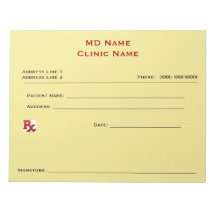
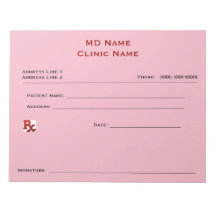
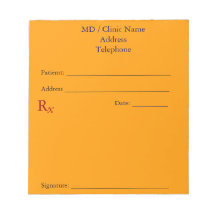
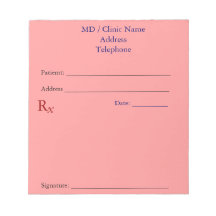
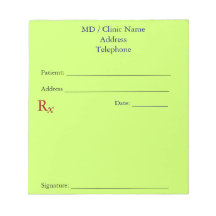
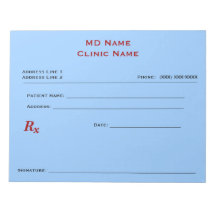
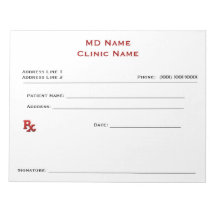
No comments:
Post a Comment